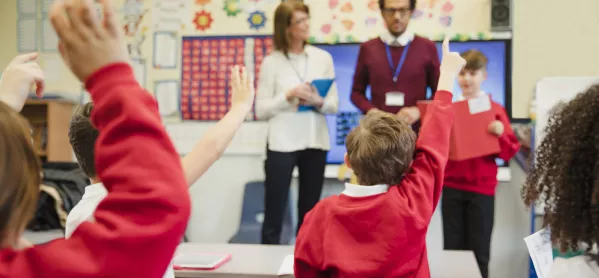- Home
- Poorer families ‘less likely’ to return pupils to class
Poorer families ‘less likely’ to return pupils to class

Poorer families are less likely to want to send their children back to school amid the coronavirus pandemic, despite these pupils having fewer opportunities for home learning, a survey suggests.
Children from better-off households are spending an additional 75 minutes a day on educational activities compared with their peers from the poorest households during the lockdown, research shows.
Pupils from the wealthiest families will have done seven full school days’ worth of more home learning by 1 June, when more pupils could return to school, according to an Institute for Fiscal Studies (IFS) report.
Coronavirus: ‘Stop squabbling and open schools,’ unions and DfE told
DfE adviser: School return plan could risk virus spread
Gove: ‘Teachers will be safe in schools’
If children do not go back to school until September, the gap between the most affluent and the poorest pupils will double to three school weeks, the study warns.
Fewer than half of parents questioned said they would be willing to send their children back to school if they had the choice, but the higher-income families were more keen for a return to school than lower-income families.
Coronavirus: The impact on disadvantaged pupils
The report from the IFS warns: “This risks a situation where the children struggling the most to cope with home learning remain at home while their better-off classmates are back in the classroom.”
The findings come after ministers and teaching unions were told to “stop squabbling” and agree on a plan for a phased reopening of primary schools from 1 June.
Anne Longfield, the children’s commissioner for England, said many children were struggling away from the classroom, and that a lack of education in lockdown would have an impact on their future life chances.
The new analysis from the IFS shows that children from more disadvantaged families are spending less time on activities that may be particularly beneficial, such as online classes and sessions with private tutors, and they have fewer educational resources and less parental support for home learning.
Researchers called on the government to address the disparities between children from different backgrounds during school closures, as they warn that the the crisis is likely to widen attainment gaps.
In the survey of more than 4,000 parents, higher-income families were much more likely than their less well-off peers to report that their child’s school provides interactive resources for learning.
Nearly two in three (64 per cent) of secondary students in state schools from the richest households were offered some form of active help, compared with 47 per cent from the poorest fifth of families, the poll suggests.
And nearly four in five (79 per cent of) secondary school students attending private school were offered online classes.
Children in better-off families were twice as likely to receive private tutoring as the poorest children, and 12 per cent of secondary students from the richest households received an hour or more of daily tutoring.
More than half (58 per cent) of primary school pupils from the least well-off families did not have access to their own study space, compared with only 35 per cent in the most well-off families.
The majority of parents of primary children reported that they were finding it difficult to support their children’s learning at home.
But less than a third (29 per cent) of parents in the poorest families would send their child back to primary school if given the choice, compared with 55 per cent of the most affluent parents.
Alison Andrew, senior research economist at the IFS and co-author of the report, said: “This risks leaving the children least able to cope with home learning remaining at home, even as their better-off classmates return to school.”
Lucy Kraftman, research economist at the IFS and a fellow co-author of the report, added: “These differences will likely widen pre-existing gaps in test scores between children from different backgrounds.”
A Department for Education spokeswoman said: “We will do whatever we can to make sure no child, whatever their background, falls behind as a result of coronavirus.
“We have set out plans for a phased return of some year groups from 1 June at the earliest, in line with scientific advice.”
Researchers surveyed 4,157 parents online in England, with children in eight different school years aged between four and 15, between 19 April and 12 May.
Keep reading for just £1 per month
You've reached your limit of free articles this month. Subscribe for £1 per month for three months and get:
- Unlimited access to all Tes magazine content
- Exclusive subscriber-only stories
- Award-winning email newsletters



